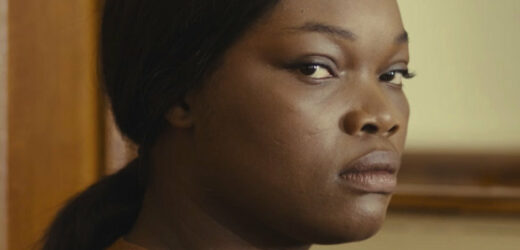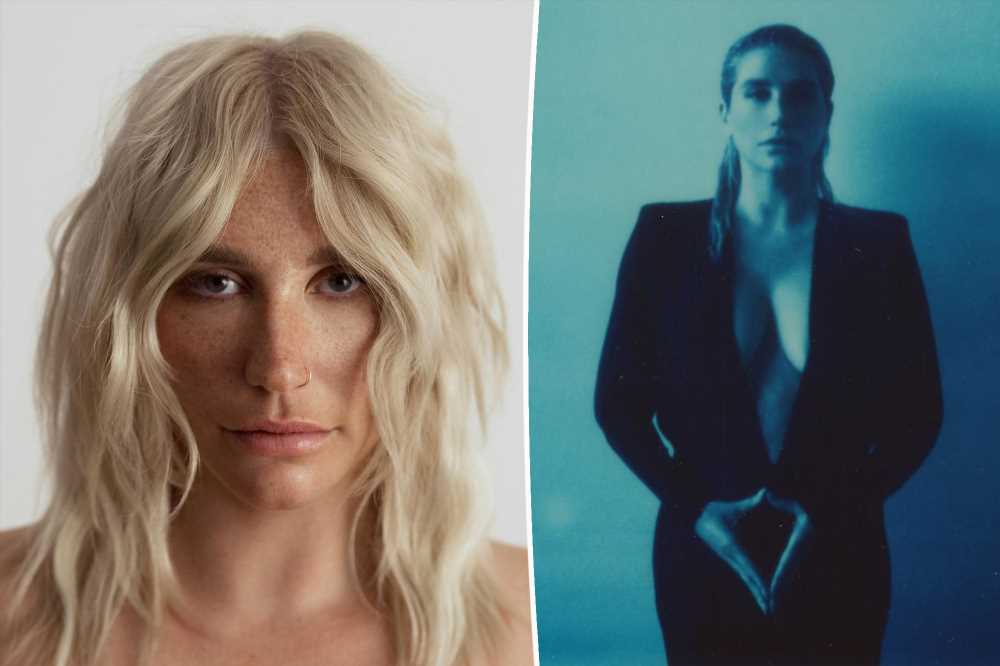By Jake Wilson
Guslagie Malanda plays a woman accused of killing her child in Saint Omer.Credit: Palace Films
Save articles for later
Add articles to your saved list and come back to them any time.
Alice Diop was already an acclaimed documentary maker when she became fascinated with the 2016 trial of a Senegalese-French woman accused of the premeditated murder of her 15-month-old daughter. Fabienne Kabou had left the child on a beach in a coastal town in northern France. Amid claims of witchcraft and post-natal depression, she was eventually convicted and sentenced to 20 years’ jail.
Diop, also a child of Senegalese immigrants and a mother herself, attended the trial in the town of Saint Omer. Though the film of the same name is her first fiction feature, it has the feel of a documentary, with long scenes played out in “real time” before an impassive camera, staged in an actual courtroom adjacent to the one where the 2016 trial took place. The austere yet gripping courtroom drama has travelled widely since it premiered last year (it won the Silver Lion prize at the Venice Film Festival, and was France’s entry for best international feature at this year’s Oscars).
Saint Omer director Alice Diop became fascinated with the story of a woman who left her child to drown.Credit: Alamachere
During the trial, which occupies most of the film’s running time, every aspect of the identity the accused woman (named Laurence Coly in the film) presents to her judges is put under scrutiny: her relationship with her child’s white father, her claim to be a victim of sorcery, even her past as a philosophy student (why would she write a thesis on Wittgenstein, one of her teachers wonders, rather than someone more relevant to her cultural background?).
Much of Coly’s dialogue has been taken verbatim from transcripts of Kabou’s trial, but Guslagie Malanda, who plays the accused woman, says she and Diop weren’t trying to create a literally accurate portrait of Kabou.
“We wanted to dare to show the solitude there could be around motherhood, and the fears,” she says, through a French interpreter. “So those things reassured me because I haven’t been in prison, I haven’t killed a child, I don’t know exactly what this is like. But we can tell a story in another way without having to be exactly these people.”
Among the observers at the trial is Rama (Kayije Kagame), a young Parisian novelist who shares Coly’s Senegalese heritage. While Rama is an imaginary character, she’s also an undisguised stand-in for Diop.
Kayije Kagame in Saint Omer: “Alice used to say to me ‘Don’t act.’ So the question is, what does that mean?″Credit:
During the trial, Coly speaks at length while Rama observes in silence – but there’s no straightforward route to understanding who either of them “really” are, let alone what passes between them at a distance.
With the film’s two stars now sitting in front of me, I’m curious about what it meant for them to act in this context, or whether the word “act” is even adequate for what Diop required them to do.
While neither Malanda nor Kagame are newcomers to acting or cinema, they don’t have a lot of screen credits between them. Malanda starred as a young single mother in Jean-Paul Civeyrac’s My Friend Victoria (2014), then took a long break while working as an art curator (she doesn’t address the reasons on the record, but talking to the Hollywood Reporter last year she observed that “none of the leading actresses in France are Black – none”).
From left, Kayije Kagame, Alice Diop and Guslagie Malanda at the Venice Film Festival.Credit: AP
Professionally, Kagame comes from a somewhat different background. Saint Omer marks her feature debut, but she’s worked extensively in theatre and directed short films of her own, besides creating installations and performance pieces. Both women choose their words with care, making clear that Saint Omer, for them, was more than just another job.
Malanda especially is at first reluctant to say too much. “I still don’t know what acting is. Maybe when I have a longer filmography you can come back and ask me again.” She volunteers, however, that for her, it has to do with “presence and absence”.
It’s not hard to apply these words to her character, who on the stand is somehow both laid bare and out-of-reach. But what do they say about how it felt for Malanda to perform these scenes? “Being totally present when you’re acting, I think is impossible,” she says, “because the present conjugates many things at once. We are what we were, what we are now, what we will be … You have to let certain things be absent in order to be present, if that makes sense.”
Guslagie Malanda in the dock in Saint Omer.Credit: AP
It does, and it doesn’t, which seems appropriate. “It’s a very interesting question in regard to this film in particular,” Kagame says. “Alice used to say to me: ‘Don’t act’. So, the question is, what does that mean? Maybe it means live it, experience it, go through it. And maybe that’s what fiction is, maybe that’s what acting is.”
Malanda and Kagame say that for them, and for Diop, the historical truth was only a starting point. “Alice always told me: ‘Rama is not me’,” Kagame says. “Of course I listened to her stories about what she experienced, but I also took my cues from the script.”
Malanda never met Kabou in person. But did she, in making the film, feel a responsibility towards her? “Yes, there was a responsibility. For me, it was to be as close as I could to her through her words, and that was perhaps one of the most intense encounters I’ve had in my life – meeting her through her words.”
Both insist that while Saint Omer might be described as a “true crime” story, it’s a long way from what the phrase typically evokes. “It’s the opposite of voyeurism, the opposite of Netflix,” Malanda says. “Or else we would have had money from Netflix.”
Kagame adds: “You’re going into a French courtroom, which is very different from a courtroom in the US.” On top of that is Diop’s use of duration. “The fact that we’re enclosed in this courtroom for long, long periods – it’s as though we’re sitting inside there ourselves. Being inside there like that is far more powerful than turning it into a spectacle.”
In that light, you might say it’s the audience that is being asked to play judge and jury. But when the idea is suggested, Malanda quickly insists that for her it isn’t that way at all.
“The goal of my role wasn’t to leave space for people to make their own judgments. Because when I was being Laurence Coly I wasn’t thinking at all about the fact that there was going to be an audience, and they were going to be thinking certain things.”
Rather, she says, “I was just in my own trial” – acting and not acting, living through the reality of the fiction, present and absent at once.
Saint Omer is in cinemas from May 25. Jake Wilson travelled to France courtesy of the Alliance Française.
Most Viewed in Culture
Source: Read Full Article







